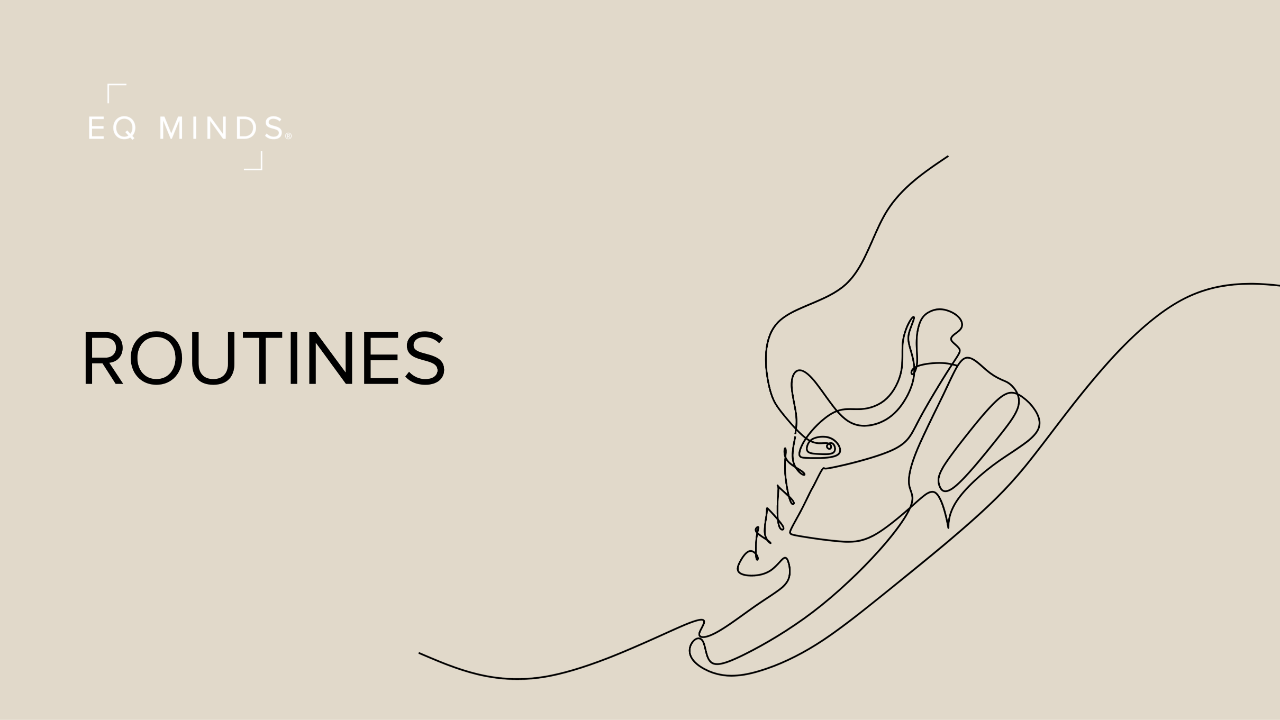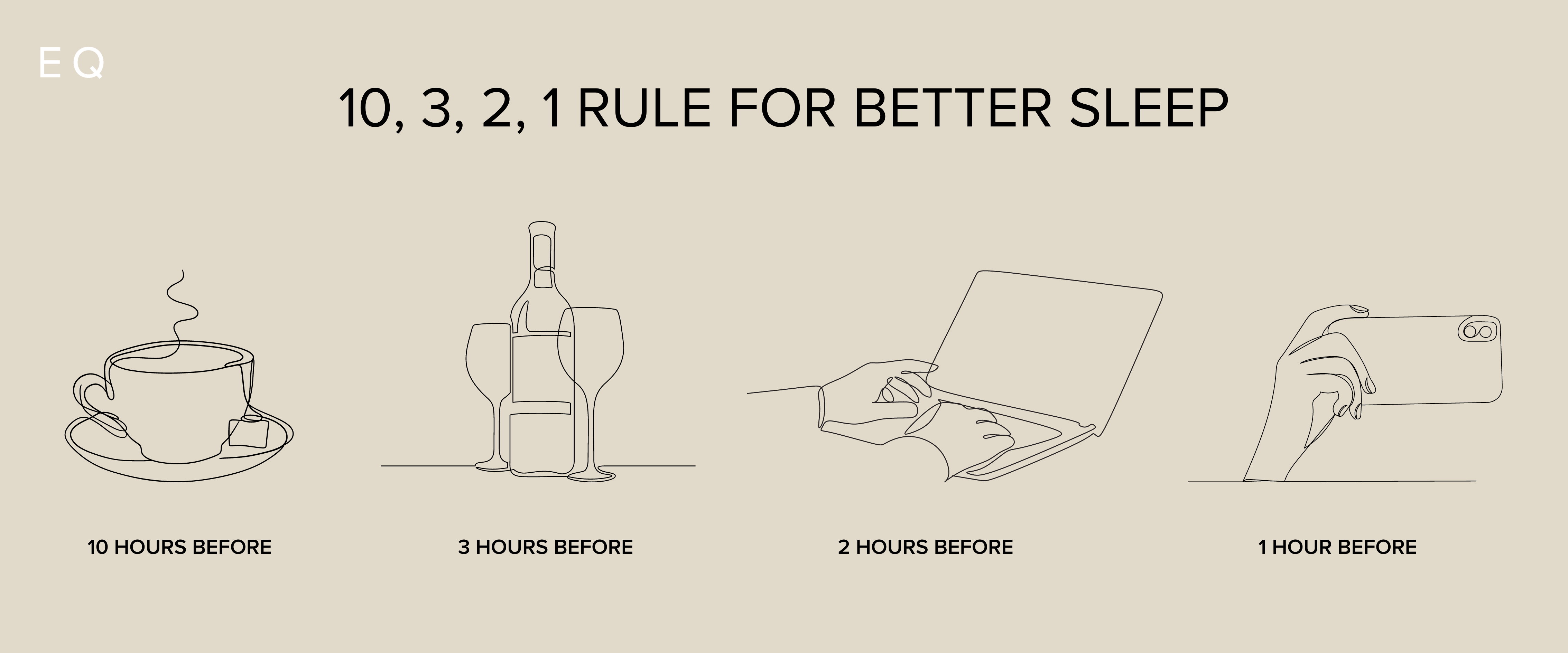Your Routines and the Hybrid Workplace
Apr 19, 2023
When your work routine changes, adapting your habits is crucial. Whether you work remotely or in an office, it's important to prepare yourself both mentally and physically for the day. Maintaining a consistent schedule, taking regular breaks, and limiting screen time can enhance both productivity and wellbeing. Properly disconnecting and unwinding at the end of the day can help prevent work from blending with personal life.
If you can, consider establishing set days for remote and office work to establish a consistent routine and prevent disruptions to your circadian rhythm and productivity habits. By adhering to a routine, you'll be better equipped to navigate the challenges of hybrid work. In this blog, we'll share some routines you can adjust to ensure they work for you, regardless of your current work location.
Before Work:
To optimise productivity throughout the day, it's important to maintain your everyday morning routine, even when working from home. If you normally wake up at 6 a.m. on office days to meditate, exercise, and commute to work, try to maintain the same routine on non-office days as well. This will help set your circadian rhythm and condition your body to the habit.
Tip: Write out your morning routine and commit to it every work day at the same time each morning.
When working from home, try incorporating a "fake commute" into your routine. After completing your morning routine and getting ready for the day, take a 20-minute walk with your headphones in, treating it as if it were your commute to work. Try listening to this walking meditation to break up your day and help separate your work and personal life, giving you the chance to reset your mind before beginning the workday or reflect once the day is done. This reinforces the habit of your morning routine and rituals, creating neural pathways in your brain to understand what happens before, after, and in between the workday
During work:
In the office, socialising with colleagues often involves taking coffee or lunch breaks, intentionally leaving work behind for a dedicated period of time. However, when working from home, it's easy to dismiss breaks and work through them, ultimately hurting your productivity levels and ability to focus. Your brain needs necessary time off, and not taking breaks can overstimulate and fatigue it.
How to add breaks to your day:
- Go for a technology free, walk outside: leave your phone behind and set out for a walk to get some fresh air. According to Dr. Allison Chase, a clinical psychologist, heading outdoors can help you find “relief and balance.” Studies also suggest that sunlight exposure strongly influences mood and energy levels.
- Exercise: 15 minute pilates routine, a quick abs workout, lunch time boxing class, the options are endless - especially when you’re working from home. Moving your body is one of the best natural ways to reduce feelings of fatigue, re-energise your body and re-inspire your afternoon. Another great addition to getting out of the house for a lunch time fitness class is that it will recharge your social battery!
- Mindfully eat: When you mindfully eat, focusing solely on the food, you stay present with the moment and give your brain a rest from constant stimulation. Try having lunch outside and doing nothing but eating. It may feel boring, but that's the point - let your brain wander!
- Meditate: Meditation does wonders for productivity and is one of the most effective breaks you could take throughout your work day. It strengthens your prefrontal cortex, which is the part of your brain responsible for decision making, judgement, behaviour, planning and self-discipline. Studies also show that meditation helps to improve your focus.

After work:
Once work is done, it’s done. Up until the past decade, people got to go home and completely switch off. Now, with smartphones, social media and email notifications, many people never do. Set clear boundaries with yourself and create an evening routine which doesn’t involve work or your phone to ensure you get the beauty sleep you need to optimise performance.
Sleep may be your most important routine you should stick to. Getting enough good quality sleep is essential for our overall health, productivity, and ability to focus. In a hybrid workplace where we may be juggling both in-office and remote work, it can be easy to fall into the trap of working longer hours, being constantly connected to technology, and not allowing ourselves adequate time to rest and recover. This can lead to fatigue, burnout, and decreased performance.
By sticking to a consistent sleep routine, you can train your body to get the restorative sleep you need, so you can function at your best. This means setting a regular bedtime and wake-up time, avoiding stimulants like caffeine and alcohol before bed, and limiting our exposure to blue light from screens before bedtime. By prioritising your sleep and creating a routine that supports it, you can improve your energy levels, concentration, and mood, and ultimately be more productive and successful in our hybrid work environment.
Try the 10, 3, 2, 1 rule for better sleep:

- Cut out caffeine 10 hours before bed. Caffeine takes around 10 hours to clear from the bloodstream and completely eliminate the stimulatory effects.
- Don't drink alcohol 3 hours before bed. Alcohol impairs your natural sleep cycle, reducing good quality sleep.
- Stop working 2 hours before bed, this will give your brain enough time to unwind and relax.
- Get away from screens 1 hour before bed, this includes phones and laptops as the blue light disrupts the body's natural sleep cycle.
Whether you work from home or in the office, creating a consistent morning, afternoon and evening routine can help you establish healthy habits that support your work-life balance. Remember to take breaks, disconnect at the end of the day, and prioritise sleep to avoid burnout and optimise performance. With a bit of planning and effort, you can create routines that work for you, regardless of your work location.
Get more sleep tips from Ashley Whitehead to unlock energy and increase productivity.
Get more mindfulness tips from Chelsea Pottenger to bring more calm to your day.
References
National Sleep Foundation. (2021). Why is sleep important? Retrieved from https://www.sleepfoundation.org/articles/why-sleep-important
